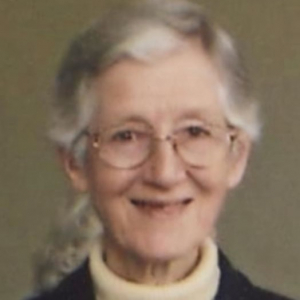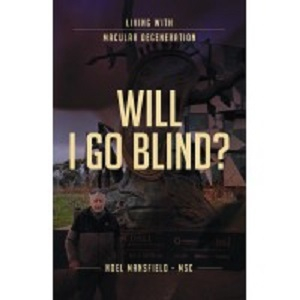Peter MALONE
Guest, The

THE GUEST
US, 2014, 100 minutes, Colour.
Dan Stevens, Maika Monroe, Brendan Meyer, Sheila Kelley, Leland Orser, Lance Reddick, Joel David Moore, Ethan Embry.
Directed by Adam Wingard.
An American thriller focusing on a family, the son killed in action in the Middle East, a visit by his fellow soldier in arms. All seems to be well. The guest, David (Dan Stevens) seems nice.
Pier Paolo Pasolini’s Teorema seems to the archetype story for this kind of film, a stranger is welcomed into a family and eventually has all kinds of change effects, some good, some bad, for each member of the family. Some British films of the 70s followed this theme, Something for Everyone, Entertaining Mr Sloane.
So, following this theme, David is welcomed into the family, helps the son, Luke, in his battles against bullies, taking them on in a local bar. Encourages the mother, goes to a party with the 20-year-old daughter. However, strange things happen, the audience knowing but the family mystified, David buying some guns and shooting the dealer and the contact, news of the death of a couple high up in the father’s firm and his being promoted. The daughter, however, is suspicious and rings the military authorities.
The screenplay then introduces themes of the programming of soldiers, especially for violence and successful missions. It would seem that David and the family son were involved in these programs. The authorities are alarmed, come to capture David who, according to the programming, outwits and outshoots all those in pursuit. He also kills a mother and father, with regrets, as well as the daughter’s girlfriend and co-worker.
The climax in this kind of film is a confrontation between the brother and sister, at the school and the preparations for a Halloween labyrinth with a lot of final action in the labyrinth. ((The final moment when David seems to be resurrected as a firefighter seems unnecessary.)
- The title, the stories of the unexpected guest, friendly, mysterious, changing the lives of all the family? Variation on the theme? And the introduction of the programming of soldiers?
- The small town, the family, David and his arrival, his story, relationship with Caleb, Caleb’s death, the photo on the wall? Polite, invited to stay? Helping the mother in the house? Driving the son home from school and discovering that he was bullied, taking the son to the bar, the four bullies and the girls, the drink, the barman, the fight, threatening the barman legally? Going to the party, making out with the girl, noting that Anna was stoned, not telling her parents? His reaction to her boyfriend and their quarrel? The father hesitant, welcoming David into the home, as part of the family, drinks, conversation?
- Anna, 20, dominated by her parents, working at the diner, her girlfriend, boyfriend, concealing this from her parents, inviting David to the party, being stoned, the fight with the boyfriend, David watching? Her suspicions, the phone call, the information? Taking his phone, photographing the phone? Ringing the doctor in Florida? Ringing the military authorities, the information?
- Luke, his age, bullied at school, David helping him, the episode in the bar, David urging him to stand up for himself, giving him the knife, the hollowing out of the Halloween pumpkins? David, school, the taunt, his hitting the fellow student, called to the principal, David coming with his mother, the expulsion, David twisting the situation, the threat of suing, hate crimes, allowing for after-school detention?
- The authorities, panic, flying to the town, the cars, the weaponry, shooting at David, his response, killing all the assailants? Killing the mother? The car, crashing into the father, and shooting him, into the desert, taking of the car, his equipment after buying the guns and killing the dealers, going to the restaurant for Anna, killing the girlfriend, the grenades in the restaurant? The fight with the commander and his death?
- Anna, getting Luke from school, the labyrinth and its intricacies, the death of the commander? Luke hiding, the confrontation with Anna, Luke and the knife, stabbing David? The fire? The escape? The fire brigade, and are seeing David emerging as a fireman?
- The conventions of the stranger transforming the household, American military experiments with the soldiers?
RIP: Sister Maria Regina fdnsc (8.10.1932 - 2.1.2022)
RIP: Sister Maria Regina fdnsc (8.10.1932 - 2.1.2022)
Sympathy to our OLSH Sisters
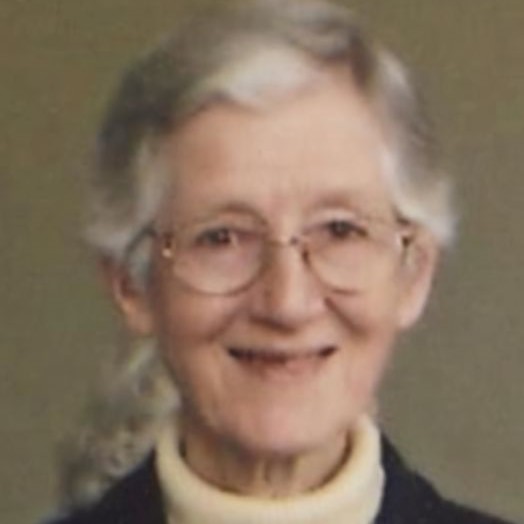
Eulogy: As we were moving towards the close of the beautiful Feast of the Epiphany, our much-loved Sister Maria Regina was blessed with her longed-for epiphany, the vision of God, face-to-face. At approximately 9.00pm on Sunday, 2 January, she gently slipped into the embrace of God whom she had lovingly and generously served. Regina was 89 years old and within days of celebrating the 65th anniversary of her Religious Profession as a Daughter of Our Lady of the Sacred Heart.
To Regina’s Sister Helen, Brother Ian and all her relatives and friends who loved her so much and are deeply saddened by her death, we offer our deep sympathy and love. We also offer sympathy to those who join us from around the world, especially, our Sisters.
Regina, as we called her, was born Marie Germaine Cawood, in Sydney, on 8th October 1932 to Stanley and Ethel Cawood, the eldest girl of six children. In 1942 the family moved to Alice Springs, where her father worked as a tourist guide, he was instrumental in starting the first tours to Central Australia and to what is now called Uluru. Regina’s grandfather was the Government Resident at Alice Springs and he had helped to look after the needs of the first Missionary of the Sacred Heart, Fr Long when he arrived in Alice Springs in 1929.
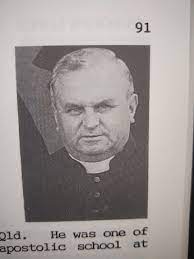
Fr Long MSC
He also welcomed the first Daughters of Our Lady of the Sacred Heart, including Regina’s Aunt, Sr Germaine Cawood who arrived in Alice Springs in 1938. Soon after they arrived, they began the first Catholic School in Alice Springs, Our Lady of the Sacred Heart and it was here that Regina attended Primary School. No doubt in this dry dusty land the seed of Regina’s vocation was sown. Regina completed her Secondary education, as a border at OLMC Parramatta. It was in the Northern Territory that Regina developed a deep respect and love for our Aboriginal Sisters and Brothers. Sisters recall how she helped them have a deep appreciation of aboriginal people’s culture, story and beauty, which came from her own respect and genuine regard for our first Nations people.
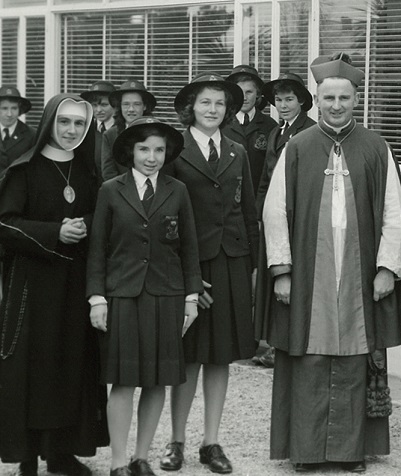
After leaving school she completed a Bachelor of Arts degree at the University of Sydney, qualifying as a secondary school teacher. In 1955 Regina entered the Novitiate at Bowral and was professed in January 1957 at Hartzer Park. She had a deep appreciation of education and learning and took opportunities to attend presentations on diverse topics, including Theology and Sacred Scripture, areas which were only opening up to religious and laity in the 1960’s.
Regina was a brilliant woman, not only intellectually. It seemed that whatever she turned her hand to, she excelled at: dressmaking, knitting, crotchet work, cooking! She was always ready to assist others in whatever way she could. In all of this, she was unpretentious, humble and unassuming.
To say that she was an avid reader is a major understatement. Her reading covered a wide range of topics, such were her interests. I suspect that many book shop owners lost a little profit because Regina had read a book or two while visiting their shop! The 15 minute ‘pop in’ to the bookshop became more than an hour!
Over the years, Regina’s ministry took her into a number of areas: secondary school teaching, Director of Our Lady of the Sacred Heart Teacher Training College, Kensington, Supervisor of Secondary Schools for the Australia Province, Regional Leader for the Northern Territory, Community Leader, Provincial Councillor and General Councillor. She moved from one to the other with her typical calmness and gracious manner.
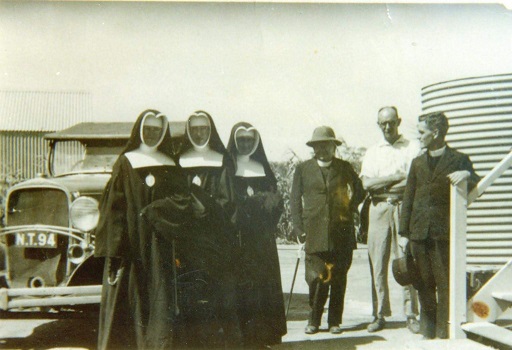
Regina found education a richly rewarding apostolate and rejoiced to watch her students mature and grow in their faith and in knowledge and move into their chosen careers. Despite her own giftedness - or perhaps because of it - she could adapt her teaching style to make learning attractive to all students. She was particularly eager to make devotion to the Sacred Heart, as it was then called, attractive to young people through a variety of images, different from the traditional image of the Sacred Heart, which would speak more appropriately to them.
Vatican Council II (1962-1965) ushered in an era of profound change in the Church and consequently in religious life. In 1977 our Congregational Leader asked Regina to work with another Australian sister, Sister Thérèse Farrell, to revise our Constitutions or Rule of Life. This was a major undertaking. Regina and Thérèse attended at the Pontifical University in Rome where they studied the Documents of Vatican II and the history and theology of religious life in depth before beginning the revision required. The revised Constitutions were approved by the Holy See in August 1983 and remained in place for thirty years. In accomplishing this work, Regina’s contribution to the life of the entire Congregation, not simply of the Australian Province, cannot be overestimated.
Regina was a beautiful Sister and those who lived with her remember her as a gracious, kind, gentle, caring person who treated everyone with equal dignity and respect. Regina was known for her generosity and thoughtfulness. She was a great collector of things old and new only to be able to give them away to those in need.
When it was becoming apparent that Regina’s health was failing and she was asked to transfer to St Joseph’s Aged Care Facility, she accepted the decision with her typical composure. It was here that she was beautifully cared for until her death.
We thank God for the many gifts given to Sr Maria Regina, we thank the Cawood family for their gift of her to our religious family. She loved you greatly.
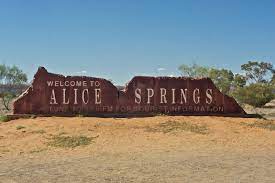
We will remember Regina as a woman of deep faith who lived our Spiritually of the Heart through her beautiful humanity with tenderness and compassion.
We thank you Regina for your graciousness, kindness and warm smile.
May your gentle soul rest in peace.
MSC Publishing and Media Report 2021 for the General Administration, Analecta.
MSC Publishing and Media Report 2021 for the General Administration, Analecta.
Apologies – we have been disconnected from the Internet since Thursday evening.
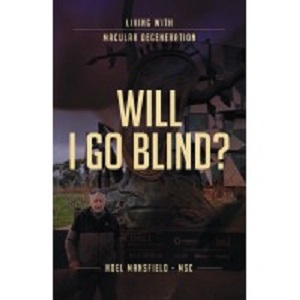
The tradition has been to name the books and further publications of the province. However, worldwide readership of books has been diminishing, greater reliance on social media. This is reflected in the life of the province.
Books, 2021.
Brian Gallagher
No Greater Love, the Human Experience of God, Coventry Press, Bayswater, Victoria, 2021, PP.52.
The Joy of Ageing, A Spirituality for Oldies, Coventry Press, Bayswater, Victoria, 2021, pp, 72.
James Littleton
Diversity in 84.Ministry, Some Remarkable MSC, Treand House, Coogee, 2021, pp 84. (George Cody, Dick Docherty, Barney Baldwin, Harry Jordan, Barney Delaney, Harvey Edmiston. Paul Stenhouse).
Peter Malone
10 Minutes, Gospel Reflections for Mind and Heart, Coventry Press, Bayswater, Victoria, 2021, pp. 71.
Noel Mansfield
Will I Go Blind? Living with Macular Degeneration, Coventry Press, Bayswater, Victoria, 2021, pp. 182.
Khoi Nguyen
Alive with Disability, Coventry Press, Bayswater, Victoria, 2021, pp.
Distinguished MSC, coordinated by Peter Malone, one of its contributors, Wanda Skowronska, published
Paul Stenhouse MSC: A Life of Rare Wisdom, Compassion and Inspiration, Connor Court, 2021, pp.322.
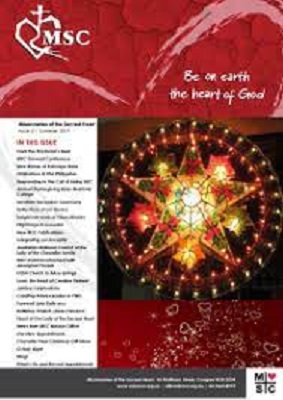
Magazine
Quarterly, Be on Earth the Heart of God, from Treand House. Glossy paper, colour photos, original articles as well as downloads from the Province website.
Articles
Peter Malone
TYPEFACE, British Association for Psychological Type.
Typewatching at the Cinema: “The Clash of the Fashion Titles…”: Cruella and some ESTJ confrontations. Summer 2021.
Typewatching at the Cinema: Marie Curie Radioactive – A Scientist Type. Autumn 2021
THE SWAG, Quarterly magazine of the National Council of Priests of Australia.
The Unholy – horror, faith and piety on screen, Spring 2021
Fatima Revisited, Autumn 2021
Francesco, Winter 2021
Film reviews. While monthly reviews appear on Peter Malone's website (on the misacor site), the reviews previously for the Bishops Conference Office of Film and Broadcasting, now closed, appear for Jesuit Communications on the Australian Catholics website.
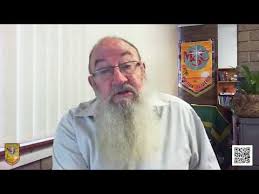
Podcast
MSC Mission Office: From the MSC Mission office, Roger Purcell does a daily podcast talk, around six minutes, sometimes inviting other MSC, Colin Sinclair, Greg McCann, and OLSH sisters.
Websites and Facebook pages.
The Province Website, MISACOR. au, established in 2006, in its present form since 2010, has six postings per week. And, automatically, the posting appears on the province’s Facebook Page.
Thanks to Brett Adamson and Matt Price for re-designing the site home page and restructuring the headings and contents under each heading. Also the introduction of the Safeguarding section. And the possibility for translating the posts into a number of languages.
Since 2020, and lockdown, vigils and funeral masses have been recorded, available on Youtube. Zoom was used for Provincial Council meetings as well as the different sessions of the General Conference with an international team including Roy O’Neill and Brett Adamson in Sydney.
Included in the province website, under media and publications, find the website for Michael Fallon/Scripture, for Peter Malone/cinema and media.
Deputy Provincial, Peter Hendriks, reaches most of the province with up-to-date news and information through email.
Many of the members of the province have their personal Facebook pages. Prominent among these is that for Claude Mostowik and the Justice and Peace office.
The 2021 student community at Cuskelly House, Daniel Magadia and Trieu Nguyen, set up an MSC vocations Australia Facebook Page with many news items, videos, recordings of ceremonies and functions, vocations appeal.
Khoi and Thang have sites/Facebook pages in Vietnamese.
Echo Boomers
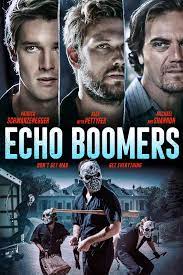
ECHO BOOMERS
US, 2020, 93 minutes, Colour.
Patrick Schwarzenegger, Michael Shannon, Alex Pettyfer, Haley Law, Oliver Cooper, Gilles Geary, Jacob Alexander, Leslie Ann Warren.
Directed by Seth Savoy.
A drama for millennials. And not particularly flattering.
Patrick Schwarzenegger leads as a college graduate who discovers that he is in deep debt, joins a group of fellow graduates who indulge in robbing the rich to enrich themselves! However, they have a resentful, angry streak and destroy a lot of the property that they steal.
However, they link up with a dealer in stolen goods, played by Michael Shannon. The film shows a number of the robberies. However, there are personal conflicts, among friends, with a young girl who overdoses on cocaine, rivalries.
While the younger audience may identify with the characters, older audiences, interested in the work of Michael Shannon, may well find the behaviour and antics of the younger generation irritating and repelling.
While a lot of the behaviour goes beyond the pale, the hero is left stranded at the end – some conscience effect and giving himself up to the police.
- The title? The baby boomers and their prosperity? The millennials and issues of envy and comparisons? The clash? The wealthy exploiting, the millennials disrupting?
- Chicago, the city settings, the suburbs, the mansions, interiors? The headquarters for the trade? Clubs? Apartments? The musical score?
- The moral stances of the screenplay? Ethical issues? Information and statistics about wealth in the United States, the narrowing of wealth? Job opportunities, millennials and their education, lack of opportunity? Issues of resentment? Robbery, vandalism?
- The film opening in prison, the perspective on the flashbacks to the activity of the group? Lance, in prison, the interview with the journalist? Recurring throughout the film? His flashbacks, his voice-over narration, prospects, hopes, moral queries, surrendering, and willing to do this over again in a heartbeat?
- Lance and his story, coming to the city, meeting Jack? Accommodation? The offer of a job, no explanations? His meeting the group, playing cards, friendships? Ellis in charge?
- The planning of the raids, the insurance contact and giving information about homes, property? Mel and his being in charge, age and experience, stances, control over the group? Going on the raids, the masks, in broad daylight, the van and the changing signs, entering, collecting the art, the vandalism and smashing? Taking the art, wanting Lance to assess it? The payoffs? After the raids, together, the drinking, cards, gambling?
- The members of the group: Jack, enterprising, encouraging Lance, participating, his further plans, secrecy, wanting Lance to help? Involvement in the raids? Stewart and Chandler, motivations, Chandler driving, in the raids? Ellis, age, military background, leadership? Allie, her wealthy background, meals with her parents, friends from college, her relationship with Ellis? Participation, motivation? Relationship with Lance? Ellis and his jealousy, attacking Lance? Her drinking, driven to the hospital, her being dumped, Lance staying with her? Her wanting to give up?
- Tensions within the group? Allie not turning up, the decision not to do the raid? Mel and his reaction? The strong arm tactics and the tough observer? Mel and his reaction about the torn painting, wanting Lance to give advice in control? Allie and Lance turning the tables on Mel, his age, lack of achievement?
- The further planned raid, without Ellis? Persuading Stewart and Chandler? In the house, the safe, the money, Lance locking them in? The escape with the money? Jack and Lance driving away, Jack persuading Lance to rest, stealing the money and driving away?
- Lance giving himself up? Interviews? Stewart and his confessing, smaller sentence? The group in jail?
- Allie, the journalist, giving her interview? Stewart and the author and his confession and sentence?
- How did this film reflect attitudes in the US, wealthy Boomers and envious millennials?
Smiling Lieutenant, The/ 1931
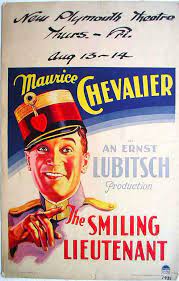
THE SMILING LIEUTENANT
US, 1931, 88 minutes, Black and white.
Maurice Chevalier, Claudette Colbert, Miriam Hopkins, Charlie Ruggles, Elizabeth Patterson.
Directed by Ernst Lubitsch.
This is an English-language version of an operetta, 1931, and a French version made at the same time with the same cast.
This is classic filmmaking of the early 1930s, directed by the master-director of this kind of entertainment, Ernst Lubitsch. And, it was a star vehicle form Maurice Chevalier, so popular in France, but appearing in a number of American films of the period – and his later making an American comeback in the 1950s, with Gigi, followed by a number of American films.
The female stars were at the beginning of their careers, Claudette Colbert, soon to win an Oscar for It Happened One Night, 1934, and a very strong career in Hollywood to the 1950s. She plays the new girlfriend of the smiling guard and is a talented violin player. Miriam Hopkins plays the awkward princess from a neighbouring kingdom who misinterprets a smile from the Lieutenant, marries him, and eventually receives instruction on how to be an attractive wife from the violin player.
Brief running time, considered a classic of its time – but would not have been so forthright in its depiction of relationships and sexuality after the introduction of the Motion Picture Code in 1934.
- An entertaining romantic comedy of the early 1930s? Pre-code and presentation of moral issues? The Ernst Lubitsch touch?
- The Austro- Hungarian Empire and the pre-World War I behaviour and protocols? Yet the modern setting, costumes and decor, vehicles…, The 1920s? Small kingdoms like Lichtenstein?
- Lubitsch and his directorial style, camera style, editing? The Lubitsch touch, wit, sophistication, perspectives on behaviour? Innuendo?
- The title, Maurice Chevalier, his French reputation, American films, performance, singing, screen presence, rakish attitudes? Nick, Vienna, military status, his friends, seeing Frantzi and her violin, pursuit, repartee with her, the relationship? Smiling at her, on guard for the king and Princess, the Princess and her interpretation? The media against him? The authorities, summoned by the King, his smooth talking his way out of the situation? The set up of the marriage situation, his being trapped? The relationship with Frantzi, the break, her message and garter? Trapped into the marriage, the relationship with Anna? The marriage night, his reluctance, meeting again with Franctzi?
- Frantzi, the orchestra, violin, attracting Nick’s married colleague? The meetings with Nick, her repartee, warning him off, succumbing, breakfast? The relationship? The crisis with his smile, the media? Breaking off the relationship? Summoned by the police, the encounter with Anna, talk, slap, mutual regard, her advice about the piano, clothes, underwear… The lingerie song? Her regrets?
- Anna, Princess, narrow life, relationship with her father, the visit to Vienna, the reaction to the smile, upset? Nick summoned, her talking with him, his calling her beautiful, her relenting, falling in love? The forced marriage? The ceremony, the wedding night, the preparation of the bed and pillows, the formalities of the court declaring the marriage room…? Nick walking out, her reaction? Her attempts to cajole Nick? The encounter with Frantzi, upset, talk, the change, her playing the piano? The change of clothes – and Nick succumbing?
- The background of the Austro- Hungarian Empire, the role of the Opera? The small countries and the small monarchies? Pomp and circumstance?
- The background characters, Nick and his faithful assistant? The police and the military? The members of the court, the ladies in attendance?
- 21st-century perspectives on relationships between men and women, men and their superiority and sexism? Nick as rakish but also callow and shallow?
- The music, the operator background, the songs, familiar from this kind of film? Yet the lyrics, the details of the breakfast song, the injuries song, finding love in the Army…?
Drive My Car
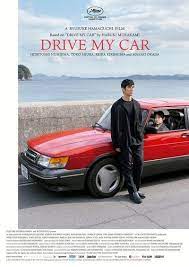
DRIVE MY CAR
Japan, 2021, 179 minutes, Colour.
Hidetoshi Nishijima, Toko Miura, Reika Kirishima, Yoo-rim Park, Dae-Young Jin, Sonia Yuan, Perry Dixon.
Directed by Ryusuke Hamguchi.
A multi-awarded Japanese film, Best Screenplay in Cannes, 2021, as well as winning the Ecumenical (Catholics and Protestants) Prize. It is based on some short stories in a collection entitled Men Without Women. And, this is partly the theme of this film version.
It needs to be noted that the film runs for three hours. Some audiences have been exhilarated. Some have found the film hard going – and the suggestion might be that the film is an interpretation of Anton Chekhov’s Uncle Vanya, the director listening to tapes as he is driven to work, cast readings, rehearsals, some scenes of performance, the screenplay relying on the audience identifying with the text, finding the text a way into understanding the characters and their personal crises and dilemmas. And, part of the finale is quite a moving ending of the play.
In fact, the film opens with a 40 minute prologue, introducing the central characters, the actor and Director, Kafuku (a pleasingly restrained, and often understated performance by Hidetoshi Nishijima) and his wife, Oto, who shares stories and details with him as she writes screenplays for television. There is a loving relationship between the two, but some sad undertones, the death of their daughter from pneumonia at the age of four, the effect on Oto and her relationships with men.
For a moment, with a scene from Waiting for Godot, suggestions are that the film is going to be tragic. It does have some tragic moments but, as with Uncle Vanya, there is a long and complex road towards peace and some redemption.
After the prologue, the action takes up, two years later, in the city of Hiroshima (and the audience is treated to various vistas of the city as Well Is the local countryside and an island with a beautiful views of the sea). Kafuku has been invited as guest director at a local theatre festival, intending to put on, as expected, Uncle Vanya. Applications for auditions have been made by cast from Korea, Hong Kong, Taiwan, the Philippines and there are various readings. Striking is an audition by young woman who is mute but can hear, Korean background, acting through sign language (and, with surtitles at performances, we see her acting skills, empathy and pathos).
The host for the festival is also Korean and we met his wife who entertains the director and his driver to a meal.
Speaking of the driver, she is a young woman (perhaps many in the audience, like this reviewer, presupposing that the driver would be male). A condition of the festival is that guests must be chauffeured because of previous legal difficulties with an accident. The director, who does suffer from glaucoma, loves his car of 15 years but entrust himself to Masaki, Toko Miura, a 23-year-old from the country, who gradually reveals her rather sad story, a harsh mother who may have suffered from mental illness, a landslide and disaster on the house, her skills in driving. Gradually, Kafuku and the chauffeur become comfortable with each other, the director trusting the driver, the driver becoming more interested in his work, listening to the tapes during the travelling, being invited to watch rehearsals.
The film works well on the level of performances, emotional complexities, especially the director’s wariness of a young actor with whom his wife had previously been familiar. This leads to an unexpected crisis.
Not a spoiler, but happy to note that the film has two endings, bringing to a satisfying conclusion the Uncle Vanya theme as well as a covid-2020 sequence, reminding the audience that life does and must go on.
- The range of awards, international? Screenplay, direction, performance?
- A Japanese story, immersing the audience in Japan, locations, situations, characters?
- The opening in Tokyo, apartments, studios, airports, streets and buildings? The transition to Hiroshima, the vistas of the city, the vistas of the island, the theatre, readings and rehearsals? The countryside, the visit to the town, the hill and the landslide? And the finale, 2021, the contemporary supermarket?
- The original book and story, Men Without Women? Elements from other stories? The title and the relevant theme?
- The scene from Waiting for Godot? The two men, the conversation, the tree, the touch of despair, the possibility of hanging? But the transition away from Godot to Uncle Vanya?
- The importance of Uncle Vanya, Chekhov’s play, characters, themes, the end of the 19th century, to Japan in the 21st-century? KAFUKU acting in the play, in the aftermath of his wife’s death and his despair? The continued reading of the text in the car, the number of readings, auditions, rehearsals, final performance? The pathos of the mute actress and her signing, comforting Vanya? Comforting Kafuku?
- The 40 minute prologue, husband and wife, rapport between the two, the sexual relationship and passion, the discussion about the stories, the wife and the various leads, the student going into the neighbouring house, the fellow-student, stalking, perceptions, leaving a trace, the tampon, everything normal at school, eventually the passion taking over? And the imagery of the lamprey, sucking on the rock, the other fish? And the themes of a stranger on the staircase? The performance of the plays for television, the film crew and his theatre work, the revelation of the death of their daughter, the visit to her grave, pneumonia at the age of four? The tension in the relationship, KAFUKU and his flight, delayed, the return home, the other man in the house, his retreating, not saying anything? His wife’s phone call, urging a conversation, his delay, returning home to find her dead, the cerebral haemorrhage? The sadness of her funeral?
- Two years later, who resuming his life, going to Hiroshima, meeting with the committee, the island house, the beauty, introduction to the driver, his wanting to drive his car, his beloved car of 15 years, and the audience knowing the background of his hitting another car, the doctor and the glaucoma and the drops? His reluctance to let anyone else drive, the explanation of the contract and the conditions, agreeing?
- The auditions, the international range, the performances? The young man from the past he met with his wife? His puzzle about his presence? The audition with the young woman from Taiwan? The introduction of the Korean actress with her sign language, the host inviting him to dinner, the discovery that the actress was his wife, the pleasant meal, the driver present?
- The driver, the gradual revelation of her story, age 23, her hard life, the absent father, the harsh mother, driving her to the train and back, one hour each way, every night? Her mother sleeping, the driver driving smoothly to avoid punishment from the mother? Her expertise in driving? Her impassive face, ever present, listening to the Uncle Vanya tapes, gradual conversation, Kafuku praising her driving, her being complimented, his taking her to the meal? Driving the young man, her smoking, the cold, sitting in the car? The gradual revelation about her life, leaving home, driving the trucks? Her being invited to watch the rehearsal in the park? Her advice to Kafuku, his wanting to see her home, the drive, the visit, the house, its destruction, the story of not going back to save her mother knowing she was in the house? Blame herself, Kafuku blaming himself for being late when his wife died? The driver’s memories of her mother’s alter ego and so caring, whether she had mental illness or not?
- The young actor, his devotion to the director’s wife, working in her television plays, his assuming a debonair style, womanising, with the Taiwanese actress and then having the accident, being late and apologising? Having drinks with the director, explaining himself? His sensitivity to paparazzi and photographers? His fight with the young man, the police, the arrest, his pleading guilty? The effect on his life – especially after the long discussion with the director about the text, the actor’s feeling empty, letting the text speak to him and elicit responses?
- The rehearsal in the park, the readiness for performance? The effect of the arrest, the challenge from the directors, to abandon the performance or is the director to play Uncle Vanya? His going away with the driver, the reflection?
- The final sequence, the end of Uncle Vanya, the actress and her sign language, the effect on Vanya and on Kafaku, a moving ending?
- And the epilogue, the driver in the supermarket, ordinary life going on?
355, The

THE 355
US, 2021, 123 minutes, Colour.
Jessica Chastain, Diane Kruger, Penelope Cruz, Lupita Nyong’o, Bingbing Fan, Sebastien Stan, Jason Fleming, Edgar Ramirez, John Douglas Thompson, Sylvester Groth, Jason Wong.
Directed by Simon Kinberg.
The 355 sounds like an interesting code reference. In fact, at the end of the film, it is explained that this was the number given to an anonymous agent at the time of George Washington. And she was a woman – and that was a reason for her anonymity. The women in this film begin as individual agents but band together choosing 355 as the code for their working.
It is noted that this is a feminist action film or, as some commentators say, a post-feminist action film. Be that as it may, whatever the intentions about promoting women in action starring roles, this is a female variation on James Bond films (and some reference to him in the screenplay) or some Mission Impossible adventures.
This is quite an international venture, the different nationalities of the leading actors, American Jessica Chastain, German Diane Kruger, Spanish Penelope Cruz (though her character is from Colombia), Lupita Nyong’o from Kenya, Chinese Bingbing Fan. And the supporting characters of men are also international, especially with Jason Fleming as a British Mr Big. And the locations are quite international – opening in Colombia, scenes in Washington DC, transition to Paris, a move to Morocco, and then Shanghai.
So, popular ingredients for this kind of action film. And it achieves what it set out to do, focus on the cast, focus on their action, remind us of international intrigue and espionage - not planning to be an intellectual exercise!
The Colombia opening introduces extraordinary developments in technology, huge potential for communication, huge potential for international surveillance and, more drastically, potential for international destruction. In the crisis in Colombia, the device is stolen, the Colombians behind the developments killed, and Mr Big thwarted. A Colombian guard steals the device (Edgar Ramirez) and proposes to sell to the CIA.
Enter the agents. Jessica Chastain, Mace, is tough-minded, ambitious, no slouch in martial arts. She works with her partner, Nick, Sebastien Stan. In Paris, their action is interrupted by Marie, Diane Kruger, a German agent. This leads to chases throughout Paris, through the Metro, the tunnels, the action is on. Meantime, the guard who stole the device is shot in company with his therapist, Graciealla, Penelope Cruz, who has been flown in from Colombia. Penelope Cruz turns out to be the most human and engaging of the women. The man who killed the guard and absconded with the device is then pursued by both Marie and Mace. In the meantime, Mace had gone to London to look up a former MI6 agent, Khadijah, Luptia Ngyong’o, who has all the surveillance skills needed for this kind of operation.
And then we are in Morocco, the device passed from contact to contact in the crowded streets, the women able to create all kinds of diversions and eventually get back the device. Handed over to the CIA. The women relax. A bad assumption – the CIA head is killed and the device taken by a Chinese agent!
So, although we have had international chases and intrigues, there is more, especially when an auction is set up in Shanghai as a cover to sell the device to international bidders. Quite a sumptuous affair, the women infiltrating, and some truths about the Chinese agent shifting perspectives on who the goodies and who are the baddies!
Needless to say, more action, much more action, confrontations, betrayals, and all the audience expects and more.
- Title, the female agent in Washington’s time, anonymous, because female? 21st-century equivalent group?
- The range of locations, international, the opening in Colombia, time in Paris, in London, transition to Morocco, transition to Shanghai? Washington? International flavour? Musical score?
- An espionage story, agent story, women agents? Parallels with films about male agents? Reference to James Bond? Mission impossible style thriller?
- The opening, the cartel in Colombia, transition from drugs to technology, the raid, Elijah Clarke and his dealings, shooting the inventor, his father, the military grade, Lewis Ro Jarvis and his stealing the technology, offering it for sale, the CIA?
- The introduction to Mace and Nick, partners for a long time, espionage work, personal relationship, posing as the honeymooning couple, the gift of the ring, the sexual relationship? In Paris, tracking Luis Rojas, beginning the deal, Marie’s intervention, taking the case, the pursuit in the streets, in the metro, the tunnels, Marie and her wits, her escape, Mace and frustration, the audience seeing Nick with Clarke, and his disappearance, thought dead?
- Marks, CIA, supervising Mace, urging her to go out on her own? Her going to England, meeting with Khadijah, Khadijah’s lecture, technology, withdrawing from MI6, her relationship and home life, persuaded to go with Mace, taking the equipment, her skills? Finding about Marie, the information about the technology?
- Marie, German background, relate to other and reporting him, independent, her relationship with Jonah, wanting to go out on her own, his commissioning her?
- Luis in Paris, the visit from Graciela, therapist, the agency, the discussions, the Colombian escort, in the fish market, the shootout, Luis being killed? Graciela and her escape, the women helping her? Her background, phoning her family, concern about them?
- The pursuit of the Colombian with the technology, the role of the women, antagonisms, guns drawn, Khadijah’s intervention, working together? The pursuit, the man escaping on the boat? Tracking him? The transition to Morocco?
- The team work in Morocco, disguises, surveillance, Khadijah going into the men’s sauna, the fight, the variety of men and the passing of the technology? The women and their ability to create diversions? The recovery of the technology? The decision to go to Marks, the CIA present? The meeting, the disbanding of the group?
- The aftermath, together, Marks and his being killed, Ling Mi Sheng? Transition to Shanghai? The information about the auction? Their dressing up, allowed in, Graciela and her improvising with the flirting businessmen? Khadijah and her going through the toilet up into the roof, observation, being found, coming down, working the technology? Marie and Graciela, in the audience? Macy, discovering Nick alive, his role in the auction, rogue agent, the clash, the fight?
- The auction, Nick and his bidding for the vase, a cover?
- Ling Mi Sheng, her father, the holding of the auction, a cover, Marks as a rogue agent, getting the technology, seeing her the powerful bidders were in coming to the auction?
- The fight, the women taken, Nick and his confronting them, Nick and the confrontation by Elijah Clarke, his being assaulted? The taking of Ling Mi Sheng, the police, the mayhem? The television screens, the threats to Jonas and his being shot, Khadijah’s partner and his being shot, the threat to Graciela’s family, spared?
- Ling Mi Sheng, downloading the technology, the tension of time? The women, the arsenal, the explosions, Mace climbing the wall, Graciela and the gun in the lift, the battle, the shootings? The final fight with Nick? His being shot by Graciela, Marie shot?
- Two months later, Nick and his position in the CIA, the number of rogue agents? His house, Mace’s arrival, the confrontation, the poison, to imprison him, the other women arriving? The farewells – to be seen again or not?
King's Man, The
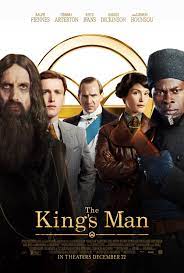
THE KING'S MAN
UK, 2021, 131 minutes, Colour.
Ralph Fiennes, Harris Dickinson, Gemma Arterton, Matthew Goode, Tom Hollander, Charles Dance, Rhys Ifans, Daniel Bruel, Aaron Taylor Johnson, Alexandra Maria Lara, Alexander Shaw, Valerie Pachner, Ron Cook, Alison Steadman, August Diehl, David Kross, Stanley Tucci.
Directed by Matthew Vaughan.
If you saw the previous two adventures focusing on The King’s Man and the Saville Row gentlemen’s shop which covers the behind-the-scenes espionage and action, the prospect of watching a film about the origins of this organisation is probably top of your list.
Whether it will stay in the top of the list is another matter! There is a lot to entertain. There is a lot of action. In fact, there is a lot of early 20th century history and World War I. But, it is a mixum-gatherum of all kinds of ingredients, many serious, many humorous, many satirical, and many, many, far-fetched and beyond.
The tone is well set in a prologue during the Boer War, the visit by the Duke of Oxford, his wife and son, representing the Red Cross, to a concentration camp, managed by General Kitchener. The Duke of Oxford is played by Ralph Fiennes, very uppercrust, very serious, important at the beginning but when he has to lighten up (understatement) Ralph Fiennes stays very serious, if not solemn, even at times with a bowler hat like John Steed whom he played in the remake of The Avengers. There is a sniper outside the camp with dire consequences for the Duke and his further protectiveness towards his son, Conrad.
So far, so interesting. 12 years later, the eve of World War I, the grand Duke in the Balkans, plots for his assassination and plunging Europe into war. But, while we see the three cousins, grandsons of Queen Victoria, playing when they are young, but great hostilities as they grow older, and all now played by Tom Hollander, we see the Kaiser is rather idiotic, the Tsar under the influence of Rasputin, and George V as very, very serious.
The first task is to protect the grand Duke which means the Duke of Oxford and Conrad (Harris Dickinson), now 18 and eager to flex his muscles and move from his father’s over-protectiveness, travelling to Sarajevo, saving the grand Duke at first, then his assassination.
But, the value of the screenplay is to reveal to us that there was a huge mastermind behind this plot, and an aspiration to world power. On a huge elevated rock, where special goats graze, lives The Shepherd, not seen fully by the audience until the end, hearing only his Scots accent and his vehemence against British persecution of Scotland! He has a group of international agents assembled, sending them out to do dastardly deeds and provoke the war. He is something like a pre--Blofeld in his mountain eerie.
So, a shift from some serious history and upper-class Brits, to a James Bondish approach to World War I. Then, unexpectedly, there comes a kind of pantomime intermission focusing on Rasputin, a heavily disguised Rhys Ifans, who tricks the tsar and tsarina in healing their child, then a guest at a huge banquet, the Duke and his son present, his son even as a sexual lure to Rasputin, and a somewhat different interpretation of his poisoning (a greedy devouring of cake then vomiting), the healing of the Duke’s injured leg, sword fighting, then the fatal shot (this time from Polly, Gemma Arterton, the family nanny, who in fact, along with Shiloh, the African servant and companion from Boer War at war days, Djimon Hounsou, forming a behind-the-scenes network of servants around the world who gather and communicate political information!)
Suddenly, there is an ultra-serious sequence on the Western front, some moving moments.
The climax is mainly on that high eerie, all kinds of derring-do (and, noticing that Ralph Fiennes has a personal trainer listed in the final credits), some bad tampering with history concerning Woodrow Wilson and America’s entry into the war, some Mata Hari intrigue, and indications that they will could be more to come!
- A prequel? The previous King’s Men action adventures? British espionage, undercover? The work of gentlemen? The shop in Saville Row?
- The prologue, South Africa, the Boer war, the visit of the Earl of Oxford, his wife and Conrad, the concentration camps, the Red Cross, observation of the camps, the men and women in cages, emaciated? The British troops? Morton, his control and explanations? General Kitchener, his reputation, the challenged by Oxford? The attack, the sniper, shooting at Kitchener, Emily standing on the way, her death, getting her husband to promise to keep Conrad out of war and danger? His promise of holding to it?
- The transition to 12 years later, pre-World War I tensions? Oxford, age, working behind the scenes, his care for Conrad, Conrad at 18, wanting to be active? The visit to The King’s Man, the suits and tailoring, the visit by Kitchener, discussion of situations, the news from the cousin in Moscow?
- The transition to the mountaintop, the Shepherd, his Scots accent, the audience not seeing him, like pre-Blofeld? His angers, grudges against the British? Outreach of power, the situation in Sarajevo, the Archduke’s visit? Oxford and Conrad going to the Balkans? Negotiations, the carriage, the assassin commissioned by The Shepherd, the failed attempt, carriage going into the no through road, the assassin shooting the Archduke and his wife? His being interrogated by Oxford?
- The introduction to the three rulers, grandsons of Queen Victoria, playing together, her disciplining them? The Tsar and his ruling Russia’s family? The Kaiser, presented as foolish? The sombre George V? The meetings with Oxford?
- The outbreak of the war, the German advance, British troops, Kitchener’s appeal? The issue of Russia withdrawing? Rasputin as one of the delegates for The Shepherd? His behaviour in Russia, Monk, dress, lascivious, the Tsar and Tsarina, his ruse with the son, the poisoning of the sun, asking for their trust, their prayer, bringing him back? His all-powerful influence? Oxford and Conrad travelling to Russia, the plan, the banquet, Conrad and the sexual advance, Rasputin and his gliding style, athletics, with the women, at the banquet, discussions with Oxford, healing his leg, in the ice? Conrad, the plan for the attack? The cake, Rasputin greedily eating it, the poison, his vomiting? The fight with Oxford, the fight with Conrad, Polly and her shooting him?
- The German advisor to the Kaiser, part of The Shepherd’s plan? The plot, Mata Hari, her being a member as well, going to the US, working in the White House, the seduction of President Wilson, the filming, the hold over Wilson to not into the war? (And the slur, historically, on Wilson?)
- Conrad, 19, the celebration? His wanting to go to war, conscription, investment, the time of training, going to the trenches, King George promising to protect him, the transfer, his device and changing identity, sending Reid to tell his father what had happened? His going to the trenches, action, the British agent in no man’s land, being shot, the authorities wanting the information, the group going out to rescue, under fire, Conrad finding the wounded man, the information for the British, carrying him to safety, the trenches, the man dead, the friend of Reid challenging Conrad, shooting him as a traitor? His burial in the war cemetery? The award? The King coming to give it to Oxford?
- The American situation, the blackmailing of the president, the filming, the negative?
- Kitchener and the ship, the Russian submarine, the torpedo, Morton and his escape?
- Lenin, the execution of the Tsar and his family, the Bolshevik revolution? And masterminded by The Shepherd?
- Oxford, Polly and Shiloh becoming a key team, place in the household, Shiloh in South Africa, Polly as nanny, the contacts with the other domestics and getting information, the encounter with Mata Hari, the special shawl, going to Saville Row and the information, the special goats, the mountaintop? The strategy, the plane, Shiloh unwilling to fly and parachute, Polly’s role at the foot of the lift?
- Executing the plan, far-fetched, Oxford and the flight, the parachute, his being caught, the plane crashing, his landing on the mountaintop, on the side of the mountain, looking at the goats, emulating their progress up the mountainside? Eventually at the top, the shootout with the guards? The Shepherd and the negative of the film, giving it to the American agent, his going to the lift, the lift stopping? Oxford and the flare, the signal, Shiloh and the lift? Polly and the shooting of the guards on the ground?
- The final revelation of The Shepherd, Morton, Scottish background, the challenge, the shooting, the sword fighting, the derring-do, the edge of the cliff, the goat and Morton and revenge for the cutting off of his horn? Oxford letting him fall?
- The president, the Butler giving him the film, is destroying it, entry into World War I?
- Peace? Celebration? The gratitude of the king? Oxford summoning the meeting, buying the shop, there becoming a behind-the-scenes group, the names from the round table?
- The epilogue, Lenin and the German advisor – and the arrival of Hitler?
Hollywood Banker
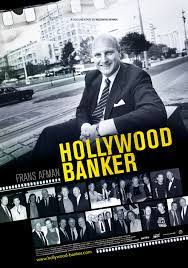
HOLLYWOOD BANKER
US/Netherlands, 2014, 82 minutes, Colour.
Directed by Rozemyn Afman.
This is a documentary for film buffs and for film historians.
Frans Afman, a Dutch banker, with an interest in movies, became involved in the financing of films in the early 70s, meeting up with Dino De Luarentiis, working out methods for pre-sales around the world from different companies and distributors, guaranteeing an income for the making of the film.
The documentary was made by friends Afman’s daughter, Rozemyn. She states that her father and his associates attended to write a book about their experiences in the film industry but never got around to it. Before he died, his daughter began to interview him and moved on to interview a great number of film producers, bankers, actors. They provide him interesting and informative comment about film production of the time and there are quite a lot of excerpts from some of the film is made.
There is a list of films that were financed along these methods, independent of the Hollywood studios, during the 1970s and, especially, during the 1980s. After the success of getting financial backing for Kevin Costner and Dances with Wolves, and its winning Oscars, there were crises in ownership of companies, buyouts of Hollywood studios, fly by night (or flight by years) entrepreneurs who overreached themselves.
During the 1980s, as the film indicates with a lot of interviews and conversations, Cannon pictures with the Israeli director, Menahem Goran, and producer, Yoram Globus, had great success with the continuing continual range of films and, then, buying up cinemas. There are also discussions with producers from Hemdale and from Coralco.
Frans Afman was a gentleman, very keen on propriety, explaining his ideas to other producers, to the banks, working on financing productions rather than relying on box office returns for profits. Throughout the film there are continued interviews with his wife, explaining her relationship, the children, the difficulties in Afman being away for so much of the year, especially in America, but, on the other hand, the perks that the family received, especially holiday home and facilities in America during the summer months. There are also visits to the Cannes film Festival.
The talking heads are very strong in praise of Afman as a person and as a professional banker. He was linked with some scandals in Crédit Lyonnais because of his presence with the bank and dealings that some of his superiors made without his knowledge. Ultimately, with the changing patterns of finance, with the ups and downs of the companies, with the buying and selling of studios, he stood back from his banking career in 1991. However, he still continued as an adviser, as President of the Dutch film Festival.
This is a fine tribute to a gentleman who was involved in the film industry but, with love of it, with an ability to deal with the various personalities, with shrewd ideas about financing, it is an interesting look at film production in the latter part of the 20th century.
And, there is a fine scene at the end of the film, Frans Afman silently dancing. A fine tribute by his daughter.
Creation Stories
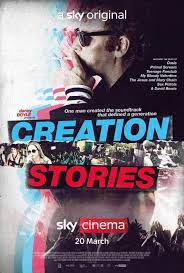
CREATION STORIES
UK, 2021, 15 minutes, Colour.
Ewan Bremner, Leo Flanagan, Richard Jobson, Suki Waterhouse, Saskia Reeves, Jason Fleming, Jason Isaacs, Paul Kaye, Steven Berkoff, Ed Byrne, James Payton, Thomas Turgoose, Irvine Welsh, Nick Moran.
Directed by Nick Moran.
Creation Stories is a portrait of Alan McGee, a young lad from Scotland in the 1970s, king on music but not successful at playing, building up his knowledge, stirred by punk rock in the 1980s, with an ear for bands who would be successful, including The Jesus and Mary Chain, My Bloody Valentine, Oasis amongst others.
The framework of the film is an interview by an ambitious journalist, Gemma (Suki Waterhouse), in the US, an older Alan McGee. The older Alan is played very effectively by Ewan Bremner. The younger is played by Leo Flanagan (with strong visual resemblance). There is a further later interview between the two for television.
The Bible indicates that creation was God making a world from nothing. To that extent, the company, Creation Records, was made by Alan McGee in rather godlike determination out of nothing.
This is a story also of rise and fall, especially alcohol and drugs and later rehab and AA meetings.
While this is not of particular interest to those who are not keen on the history of British popular music, at the end, there is political interest in Alan McGee’s connection with the British Labour Party and Tony Blair, discussions with Peter Mandelson and Alistair Campbell, and his later disillusionment with Blair and the party.
The film was directed by Nick Moran who also appears in the film and cowritten by the team of Irvine Welsh and Dean Cavanaugh (Trainspotting) who also appear.
(Quite a number of adverse criticisms from Scottish viewers who complain about Edinburgh accents used instead of Glasgow accents!)
- British and popular musical history of the 80s and 90s, into the 21st century? Creation records? Alan McGee as the founder and manager?
- The musical score, the range of popular groups and their songs, The Jesus and Mary Chain, My Bloody Valentine, Oasis…? The aftermath of the Sex Pistols? Punk rock?
- Scotland in the 1970s, family life, poor, music, changes, music shops?
- Alan, his father’s criticisms, proper, the Masons (and his uniform)? Alan defying his father, his friends, going to the city, the shops, the bands? His attempts at playing, not successful?
- The device of the older Alan McGee being interviewed, Gemma, television, 21st-century interview, the range of flashbacks, building up the picture? 21st-century Alan, his success, picking the musicians, promoting the bands, creating the company, his associates, in the UK, in the US, personal success? The background of his personal life, relationships? Issues of drinking, drugtaking, proliferation of drugs, the effect?
- Alan as an operator, moving around, listening to the groups, picking the talent, promotion? American links? The example of Oasis, the Gallaghers, his signing them, promoting them?
- Giving up the company, going into rehab, the meetings, the effect?
- With Malcolm McLaren, working with him, helping him?
- The political connection, the British Labour Party, meetings with Tony Blair, Peter Mandelson, Alistair Campbell? Donations? His becoming disillusioned, despising Peter Mandelson, criticisms of Blair?
- Alan McGee 60 at the time the film was made, further interviews with Gemma, his rant on the television set, backing down?
- Looking back over his life, his career, reuniting with his family, with his father, a marriage, rehab? His influence on the British music industry?
